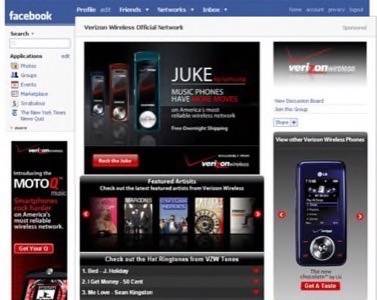At long last, Facebook today finally unveiled its much hyped advertising strategy at an invite-only event in New York. Their three pronged attack has already been reported on ad nauseum, so beyond a quick overview, I won’t get into the reporting side much.

The company’s approach to advertising boils down to an attempt at conversational marketing, where users become product promoters and are encouraged to spread the word about things they buy and use among their group of friends and contacts. “Facebook Ads represent a completely new way of advertising online,” said Facebook CEO Mark Zuckerberg to a small crowd of a few hundred ad execs and press, with his usual Jobsian hyperbole in full effect. “For the last hundred years media has been pushed out to people, but now marketers are going to be a part of the conversation. And theyÄôre going to do this by using the social graph in the same way our users do.”
Facebook’s ad strategy has three main components:
- Business pages – Businesses can build profile pages on Facebook that users can interact with. I’m not sure what the benefit is here over the Facebook sponsored groups that businesses have been paying large fees to have for months. 100,000 business pages supposedly launched today, though.
- Social Ads and Beacon – Ads targeted by user profile data — everything from favorite music to relationship status, and the ability for people to publish product interactions from third-party sites to their news feed (Beacon works more or less as rumored).
- Insight – Marketing and usage metrics for advertisers about who is clicking on their ads and how to better target them.
Obviously the most compelling part of what Facebook announced is Social Ads and Beacon, both of which operate in basically the ways we have been expecting. The reactions across the blogosophere have ranged from lauditory, to fearful, to bored.
There are those who agree with Zuckerberg that Facebook’s new strategy is a winner — highly targeted ads and consumers acting as marketers. There are those who think the whole idea reeks of privacy violations — ads based on the personal information about yourself you intended only to share with friends? There are those who were hoping for something bigger — the next AdSense. There are those who wonder if the whole thing will work — who wants to promote products anyway?
On that last point, the answer is probably a whole lot of people. While people are unlikely to trumpet prewritten marketing messages to their friends, we already do a lot of marketing in our lives. We wear t-shirts with logos on them, we talk to our friends about things we’ve purchased, and directly on Facebook we provide numerous lists of our favorite things (music, TV shows, movies, books, sports teams — we’re acting as marketers for all of those things). It’s not quite a big leap to suspect that people might want to interact with their favorite brands on a more personal level and share those interactions with their friends. In some respects, that’s already been happening on Facebook for a long time — the Apple Students group, for example, has over 420,000 users participating in one giant commerical.

There are certainly some legitimate privacy concerns, but I’m not sure ad targeting based on explicit data is much different than targeting based on implicit data (i.e., data you knowingly enter vs. data gathered based on the things you look at or interact with). Further, I’m not sure how Facebook ads based on your list of favorite bands are much different than ads targeted by the Google search you made for a medical condition. Both could theoretically be tied to you (though in each case the company serving the ads promises they aren’t) and both are based on potentially private information that you may only want a select group of people to know about. Would there have been any privacy concerns voiced if contextual text ads (like Microsoft’s adCenter product) were being used on Facebook — essentially doing the same thing and targetting ads based on keywords you’d entered into you profile? I tend to doubt it.
Conclusion
In all, I suspect that if Facebook provides opt-out tools on par with the ones they provide for the news and mini feeds and if the ads themselves aren’t too annoying, there won’t be much of a backlash from users over these ads. I was among the early Facebook users who was uncomfortable when the news feed first debuted. In time, most users adjusted and now rely on it to keep in the loop with their friends. In my personal view, ads served by a robot scanning my profile for keywords is less invasive than a news ticker that displays my every move to all my contacts. If Facebook users can get used to that, I don’t think they’ll have much trouble accepting this. But what do you think? Leave your thoughts about Facebook Ads in the comments below.

















